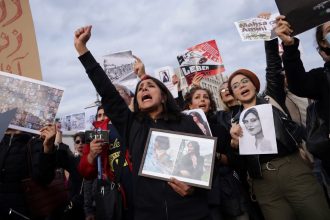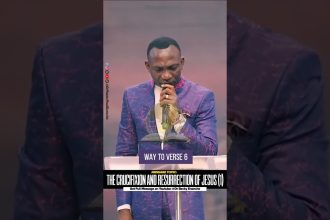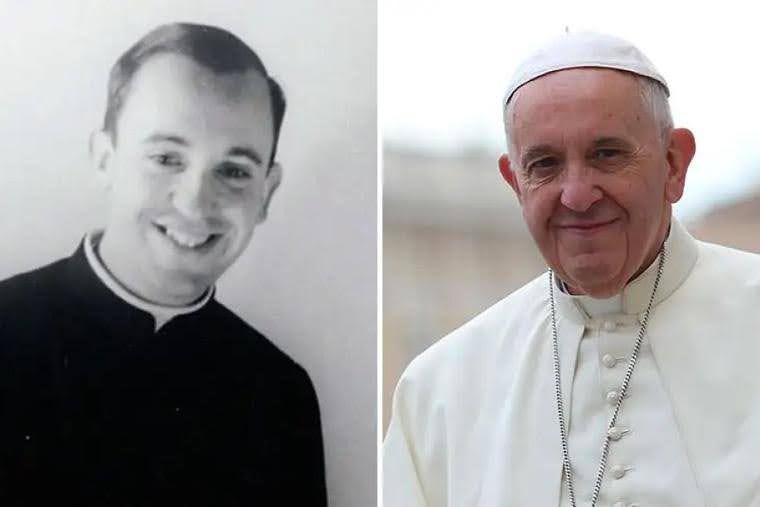Pope Francis, the 266th head of the Roman Catholic Church and the first ever pontiff from the Americas, has died at the age of 88.
The Vatican confirmed his passing early Monday morning, sending waves of grief through the global Catholic community, including Nigeria, where millions of faithful are mourning the loss of a beloved spiritual father.
Cardinal Kevin Farrell made the announcement from St Peter’s Basilica, saying the Pope passed peacefully at 7:35 a.m. Vatican time. “At 7:35 this morning, the Bishop of Rome, Francis, returned to the home of the Father,” he said. “His entire life was dedicated to the service of the Lord and His Church.”
Here is a reflection on the life and times of the man who brought new energy, bold reforms and compassionate leadership to the Church, especially as remembered by Nigerian Catholics.
Fireboy shines in landmark Royal Albert Hall concert
Afrobeats star Fireboy thrills listeners in London concert.
)
Thigh Chafing? 5 Effective tips to prevent and soothe the rub
Thigh chafing happens when your inner thighs repeatedly rub together, and it is usually combined with sweat and friction.
)
5 Affordable Yoga Studios in Lagos for Beginners
Discover Lagos’ top 5 yoga studios for beginners! Find affordable classes, serene vibes, and flexible schedules to start your wellness journey today!
)
A humble beginning in Buenos Aires
Born Jorge Mario Bergoglio in Buenos Aires, Argentina, in December 1936, Pope Francis was the son of Italian immigrants. He worked as a janitor and chemical technician before becoming a Jesuit priest in 1969. His simple lifestyle and deep sense of humility set him apart early in his clerical journey.
Even as a cardinal, he lived in a modest apartment and took public transport, often cooking his own meals.
A papacy of firsts and global influence
)
In March 2013, Pope Francis was elected to lead the Church after the resignation of Pope Benedict XVI. He became the first Jesuit pope, the first from Latin America and the first non European in more than one thousand years to wear the papal crown.
READ ALSO: Pope Francis says Church hasn’t known ‘how to listen’
He chose the name Francis in honor of Saint Francis of Assisi, known for his deep love for the poor. His focus on social justice, climate change, and the plight of migrants shaped his legacy. His messages often encouraged Nigerian Catholics to embrace compassion, speak out against corruption, and care for the vulnerable in society.
A familiar figure among Nigerian Catholics
Pope Francis consistently spoke to the global south, and his attention to African concerns was evident. Nigerian clergy frequently quoted his teachings, and his positions on poverty, justice and inequality often mirrored the struggles faced by many communities in the country.
He never visited Nigeria officially, but his presence was felt through his messages, his support for African bishops, and his engagement with topics close to the hearts of Nigerian believers.
A voice for Gaza and the oppressed
)
Pope Francis was widely regarded as a defender of human dignity, and this extended to his outspoken support for the people of Gaza. During intense escalations between Israel and Hamas, he called for an immediate ceasefire and condemned the killing of civilians, especially women and children. He referred to the situation as a humanitarian tragedy and urged the international community not to remain silent in the face of such suffering.
His call for peace, mutual respect and dialogue struck a chord with many Nigerian Catholics who have themselves lived through conflict and unrest. For them, the Pope’s empathy with Gaza reinforced his legacy as a global moral leader unafraid to speak uncomfortable truths.
RELATED: Pope condems ‘hell’ of migrant detention camps in Libya
Moments that sparked controversy
)
While widely admired, Pope Francis had his share of controversial moments. One such instance that drew backlash in Africa was a viral video showing the pope withdrawing his hand from a black priest who attempted to kiss his papal ring. Though the Vatican explained it was to prevent the spread of illness, many Nigerian faithful considered the gesture dismissive and racially insensitive.
His stance on same sex unions also stirred debate. In 2020, Pope Francis expressed support for civil protections for same sex couples, saying they too are “children of God.” While he did not endorse same sex marriage within the Church, his comments were seen as a break from traditional Catholic positions, prompting criticism from many Nigerian Catholics who remain deeply conservative on such issues.
READ ALSO: Pope admits priests, bishops sexually abused nuns
Health struggles and resilience
)
In his later years, Pope Francis battled multiple health issues including colon surgery in 2021, chronic knee pain and recurring respiratory infections. Despite this, he continued to travel and speak boldly on global issues, earning respect for his resilience and unwavering commitment.
Though he hinted at possible resignation on a few occasions, he stayed in office until his passing, maintaining his role as a moral voice on issues like war, climate change, and economic injustice.
A legacy that will endure
)
Pope Francis may be gone, but his impact on the Church and the world will remain for generations. He will be remembered for his openness, humility, and efforts to bridge divides within the Church and beyond. Nigerian Catholics, especially, will remember him as a pontiff who made them feel seen, heard and spiritually included.
As mourning continues across Nigeria’s dioceses and parishes, his teachings will likely serve as a guidepost for many in the years to come. In life, Pope Francis challenged believers to walk with the poor and speak truth to power. In death, he leaves behind a Church at a turning point and a people forever changed.







